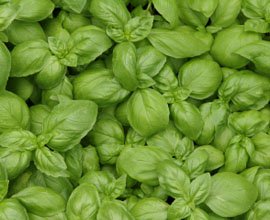Canning and Preserving the Harvest

One of the most frequent questions we get asked is “How do I save my herbs over the winter?” Here are some ways to preserve your herbs, one or two you may have heard of and some may be completely new. Try experimenting with one or two and let us know which work best for you.
Harvesting
Leaves should be harvested when they are at their peak, during a cool part of the day so they will not wilt before you get them into the house. Cut off no more than a third of the plant during the growing season and only cut off more if you are finishing the season for annual plants such as basil, dill & cilantro. Chives should be cut completely across the base of the plant, never across the tips, so they will regrow. Rosemary, Oregano, Sage, Thyme and other perennials should also be cut not more than a third of the plant.
Freezing
This generally works well for tender leafy herbs such as basil, chives, parsley, cilantro, dill, and mints. Three techniques work well and depending upon the amount you have to preserve, you can choose between them. The easiest way is to paint the leaves with some light olive oil or vegetable oil and place them into ziploc bags to be frozen. Some may turn black when they freeze but the flavor is held very well and they taste almost like fresh when you take them out to use them. The other technique is to make a paste or “pesto” with oil and herbs in a blender or food processor. You then freeze the pesto in a Ziploc bag or on waxed paper. Once it is frozen, store in freezer and cut off pieces as needed and thaw in your hot recipes. One other way to freeze herbs is to chop coarsely, fill ice cube trays with herbs, add water to cover and freeze. Thaw them and drain well. Chop finely to use in recipes.
Herb Flavored Vinegars, Oils, Herb Butters, and Herb Salts
One of the best ways to store herbs is to add them to vinegars, olive oil, fresh butter, or sea salt. The flavors of the herbs are infused into your favorite oils and vinegars and these make wonderful gifts as well as cooking ingredients. For safety, refrigerate tightly closed containers to keep them fresh.
Drying
The oldest way, due to lack of freezers, was to dry your herbs. Keep in mind, using this technique can evaporate the flavors of the herbs very quickly so I recommend drying and then freezing or refrigerating the herbs that you will not be using in the very near future. Drying works well for Rosemary, Sage, Thyme, Oregano, Marjoram, and Savory and can actually concentrate their flavors and make them stronger tasting than fresh. You can use your microwave to make short work of it. Just place the herbs in between paper towels and cook on high power for 1 min. at a time until they are crisp and dry. Food dehydrators work great too for large quantities.



